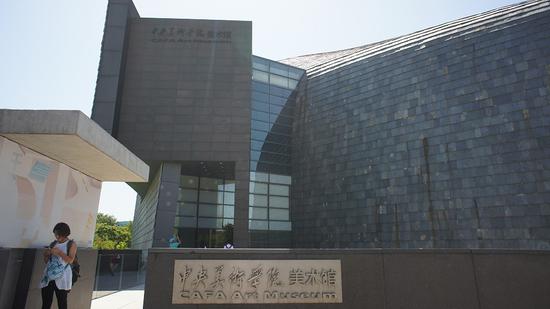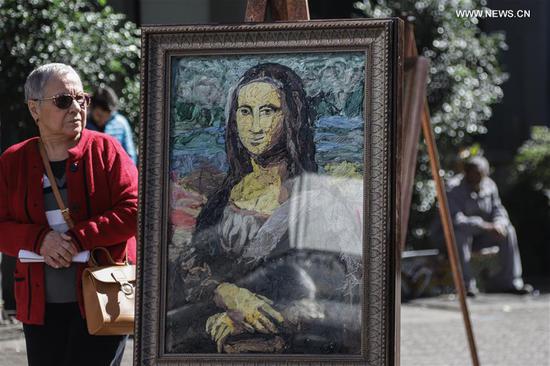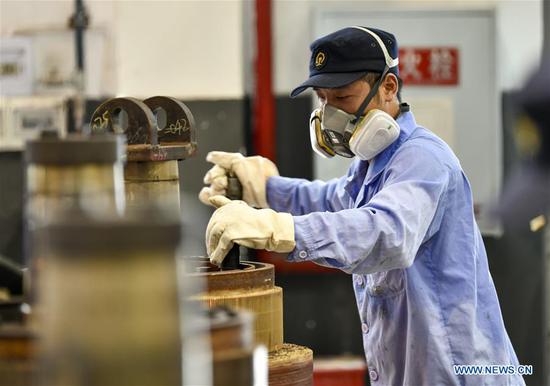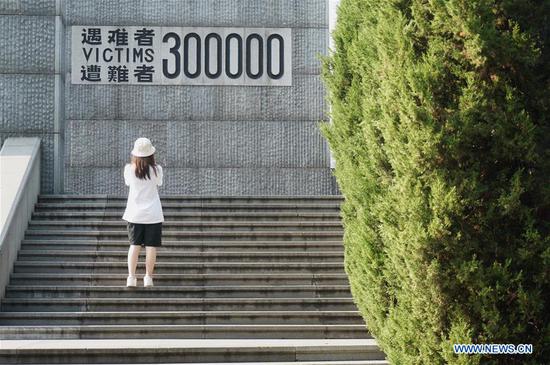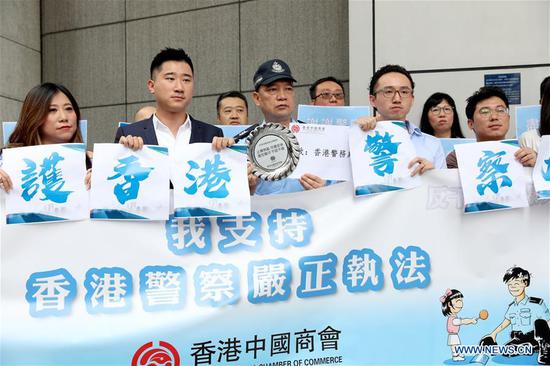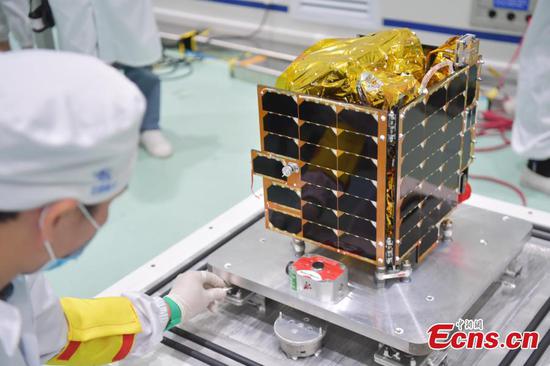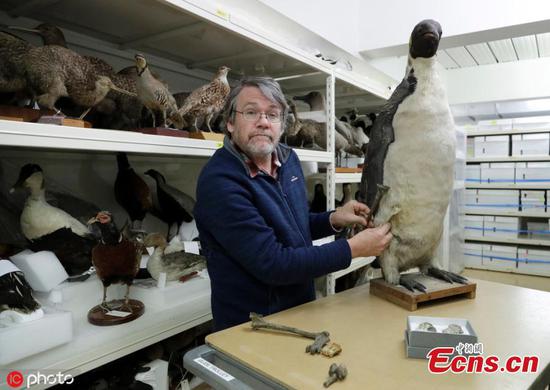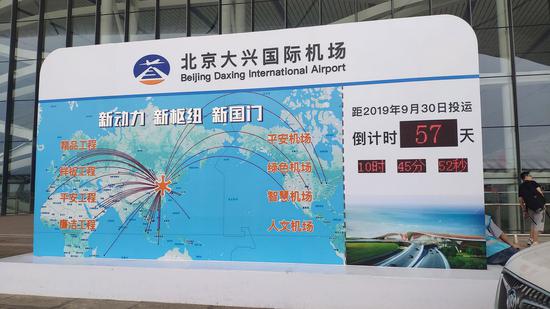
An employee introduces vacuum chamber components to visitors during the SEMICON China 2019 in Shanghai. (Photo/Xinhua)
Despite trade frictions, China's semiconductor industry should remain open to international cooperation and make more efforts to contribute to the development of the sector which is highly globalized, company executives and analysts said.
Sun Yingtong, chairman of Nationz Technologies Inc, a major chip company in China, said: "Openness is the soul of the semiconductor industry. Despite the complicated international situation, we still need to have an open and inclusive mind. No matter what happens, we have to work hard to make ourselves leaders in technologies."
"Though trade disputes will temporarily boost the demand for domestic chips, it cuts Chinese companies' access to crucial chip design tools such as Electronics Design Automation."
According to him, trade frictions disrupt the chip industry chain, which is highly globalized. No country can thrive alone without the support of other countries.
A case in point is that U.S. semiconductor companies rely heavily on the China market for growth. U.S. chip giant Qualcomm Inc saw a 13-percent year-on-year decline in revenue in the second quarter of this year, due to poor performance in China, a market it relies on heavily.
Against such a backdrop, analysts suggest that the government and Chinese companies should take the opportunity to expand cooperation with South Korea and European countries.
"More efforts are needed to create a better business-friendly environment and make more friends with other countries," said Pan Jianyue, founding partner of SummitView Capital, a Chinese investment company.
Wang Xinzhe, chief economist at the Ministry of Industry and Information Technology, the country's top industry regulator, said on May 17 that the integrated circuit industry is highly internationalized. Its 60 years of development show that open cooperation and mutual benefit are not only the consensus of the global semiconductor industry but a must for industrial development.
The development of China's integrated circuit industry is inseparable from global cooperation and support; and the development of the global integrated circuit industry is also inseparable from China's active participation, Wang said.
According to him, new measures will be taken to strengthen the protection of intellectual property rights, and create a fair and transparent market environment for domestic and foreign-funded enterprises.
More efforts will also be made to attract global integrated circuit companies to China to build research and development, production and operation centers, to encourage more entrepreneurs and high-quality technical management teams to work in China, and share the opportunities brought by China's market potential, Wang said.










